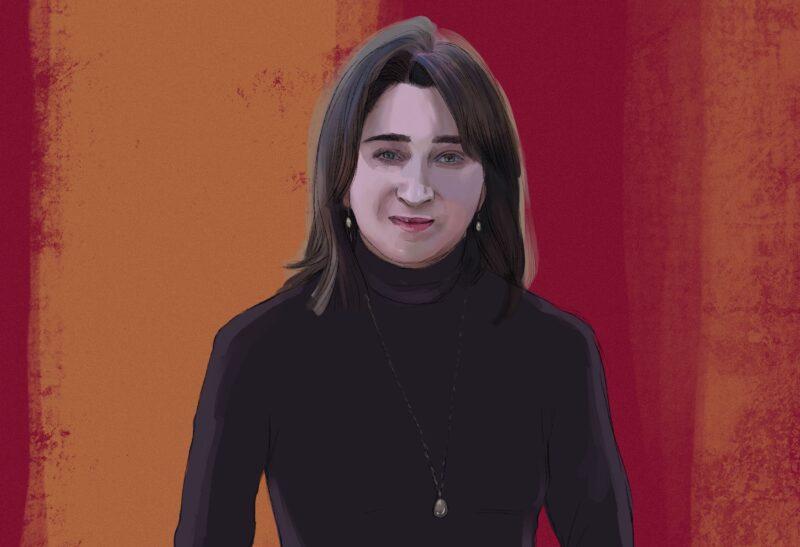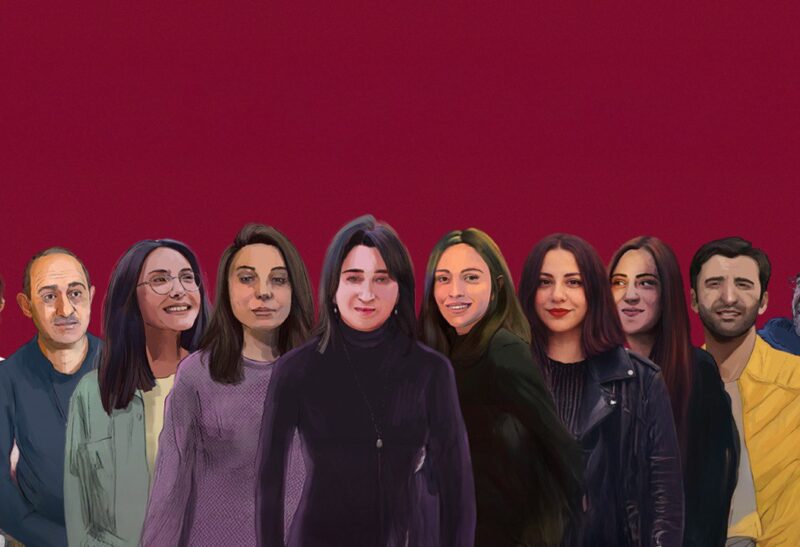This week saw the health of activist Anar Mammadli deteriorating in prison, Azerbaijan ranking low in the European justice system, and new rulings for compensation in cases concerning violations of human rights.
Anar Mammadli’s health deteriorates in custody
Anar Mammadli, human rights defender and head of the Election Monitoring and Democracy Studies Center (SMDT), has reportedly experienced a severe decline in his health while detained in the Baku Pre-trial Detention Center. His lawyer, Elchin Sadigov, who recently visited him, expressed grave concerns about Mammadli’s deteriorating condition, citing untreated bronchitis and suffocating conditions in a poorly ventilated cell. Despite multiple requests for medical examination and treatment, authorities have not responded, leading Sadigov to consider applying for house arrest on health grounds.
Mammadli was arrested on April 29 in Baku, and his and his father’s residences were searched subsequently. He faces charges under Article 206.3.2 of the Criminal Code (organized smuggling), which he denies. He attributes his arrest to his work in election monitoring and human rights advocacy. The initial detention period set was three months and 28 days, which has since been extended.
This case adds to a troubling pattern in the country, where approximately 20 journalists and activists, including notable figures from AbzasMedia and Toplum TV, have been jailed under similar charges in the past 11 months. All have denied the charges, claiming they are being targeted for their anti-corruption efforts and human rights work. The lack of response from the Ministry of Justice’s Medical Administration and the Penitentiary Service to inquiries about Mammadli’s health situation further highlights concerns about the treatment of detainees in Azerbaijan.
Azerbaijan’s justice system: low spending, few lawyers
In a recent report by the European Commission for the Efficiency of Justice (CEPEJ), Azerbaijan ranks low in the European justice system, with significant disparities in legal expenditures and resources compared to other European countries. The report, which assesses justice systems up to 2022, reveals that Azerbaijan spends only 17.7 euros per capita on justice, markedly below the European average of 85.4 euros. This places Azerbaijan among the lowest spenders, alongside countries like Georgia and Turkey.
The report highlights that while Azerbaijan’s justice budget has increased across all categories since 2020, it still only constitutes 0.24% of its GDP, again below the European average. Notably, Azerbaijan has seen a substantial 104% increase in the prosecutor’s office budget, one of the highest in Europe, where the average increase was 12%. This reflects a broader trend of rising legal expenditures across Europe, particularly in legal aid, which has also seen increases in Azerbaijan due to a rise in post-COVID-19 complaints.
Despite these increases, Azerbaijan still has one of the lowest ratios of lawyers and judges per capita in Europe, with only 23 lawyers and 5.4 judges per 100,000 people, significantly under the European averages of 180 lawyers and 22 judges. The report also points out gender disparities, with only 20% of Azerbaijani judges being female, the lowest percentage in the Council of Europe region.
Azerbaijan faces multiple ECHR rulings on human rights
The European Court of Human Rights (ECHR) has once again ruled against Azerbaijan, ordering the country to pay compensation in several cases concerning violations of human rights. Among the cases, the ECHR found Azerbaijan responsible for the violation of freedom of expression in the case of journalist Natiq Adilov, who was denied access to financial documents from Baku State University by the Ministry of Finance. The court awarded Adilov 1,500 euros for legal costs and expenses.
In another significant ruling, the ECHR addressed the case of Zöhrab Ismaylov, whose home was demolished by the State Oil Company of Azerbaijan Republic (SOCAR) despite his legal resistance and timely payments for utilities. The ECHR dismissed İsmayılov’s complaints, declaring them inadmissible.
The court also dealt with the case of Simuzar Babayeva, whose brother died in prison under suspicious circumstances. The ECHR ruled that Azerbaijan violated the right to life and prohibition of torture, awarding Babayeva 35,000 euros for moral damages and 1,500 euros for costs.
Additionally, the ECHR provided a three-month period for parties to reach a settlement in the case of Rauf Rzayev and others, who were affected by the construction of new park complexes in Baku. The plaintiffs had their properties demolished and sought compensation for the violation of their property rights.



